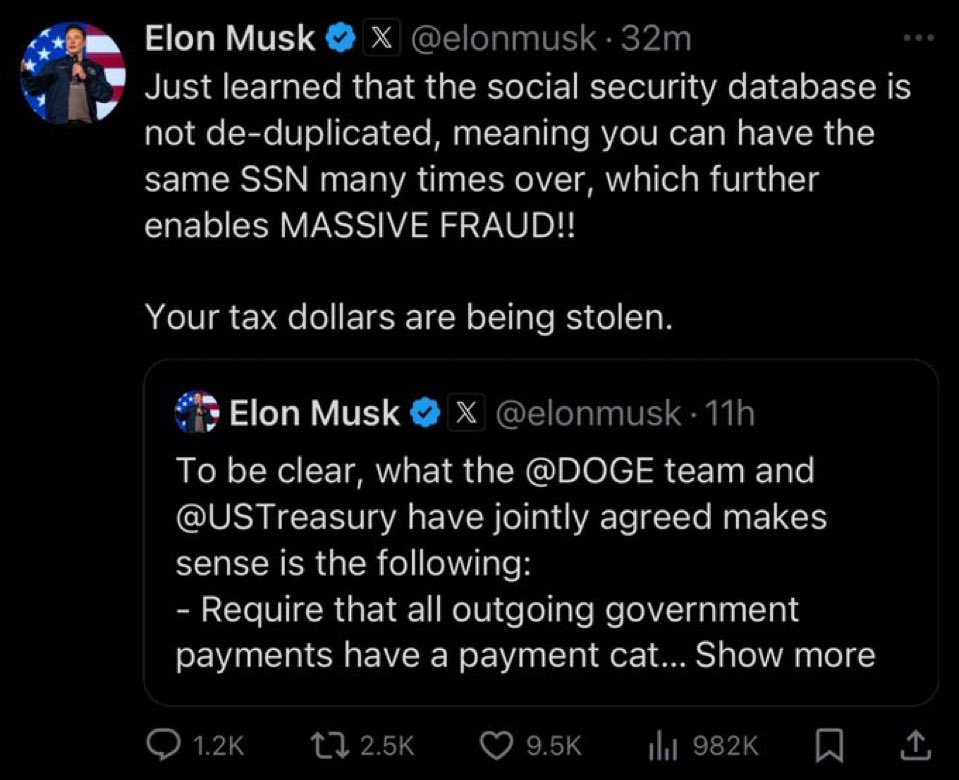
Laurent
@Ls01
Followers
3K
Following
7K
Statuses
58K
'patainformaticien. Contempteur du monde. Vos modus ponens sont mes ex falso quodlibet. Tout arrive par hasard et par nécessité, sauf dans certains cas.
Toulouse mostly, Paris un peu
Joined November 2008
RT @jorgemanru: There is a table in Basemamp that has 9 billion rows, and it's pretty crucial to render several key screens. That's MySQL w…
0
89
0
This place is not dead yet... (X/Twitter, terre de contrastes...)
Because both topics touch the foundations of the respective field, you need a complete first principles approach: instead of starting with a common sense idea that you partially deepen, you will have to start with an empty table on which you build the core ideas of representation in mathematics and physics up from scratch. For Gödel, it's best to take a course in formal logic, so you can eventually work through the proof step by step. Important background is Hilbert's program, general theories about representation and the debate of constructive vs. nonconstructive mathematics. Understanding the proof requires definition of predicate calculus, partially recursive functions, creation of integer arithmetic using logical languages, Church Turing thesis, approaches for formal definitions of truth, and the particular motivation and question that Gödel tries to answer. There are philosophical texts (eg by Lucas) and well written popsci summaries in Quanta magazine, but because they are not completely formal, they invariably miss the point. Penrose gets it wrong, and Hofstadter's famous book gets it subtly backwards, too. Not being a physicist disqualifies me from giving advice on understanding quantum mechanics. That said, you will need a solid grasp of linear algebra, Hermitian operators, Dirac notation, partial differential equations, complex analysis, Lagrangian and Hamiltonian, Maxwell's equations, group theory, basics of quantum field theory, and quantum information theory. You need to be able to derive the Schrödinger equation and solve it for simple potentials and understand the measurement problem. I would estimate the prerequisites for Gödel's proof to take 2-3 years, for quantum mechanics 5 years or so. It is certainly possible to explain the essence of an understanding of the incompleteness theorem or the Copenhagen interpretation in a few pages, but that means that you are being told a story that may give you a sound intuition, but which you cannot verify, criticize or compare to different understandings.
0
0
0
@deadalnix Ton aspirateur n'est pas encore aussi intelligent que toi - au sens que l'on donne traditionnellement à ce concept. (mais il est probablement plus modeste🙂)
0
0
1
Le petit monde de la cybersécurité est shocked, shocked en lisant ça
Je rajouterai également que je perçois une tendance dans ces nouvelles activités qui fait que les gens viennent nous voir pour obtenir un tampon d'un organisme reconnu plutôt que de réelles compétences. Convaincre les financiers, la réalité technique, on verra après quoi.
0
0
1
@deadalnix Je ne suis pas sûr que les gens qui mettent au point des algos de cryptanalyse différentielle ou qui optimisent des méthodes de compression soient spontanément capables de faire des zoulis dessins qui tournent en Python... (But they are still dev enough for me, btw)
1
0
0
@deadalnix Heureusement que je ne suis plus dev... - Mais peut-être que je ne l'étais pas du tout d'ailleurs ;)
1
0
1







